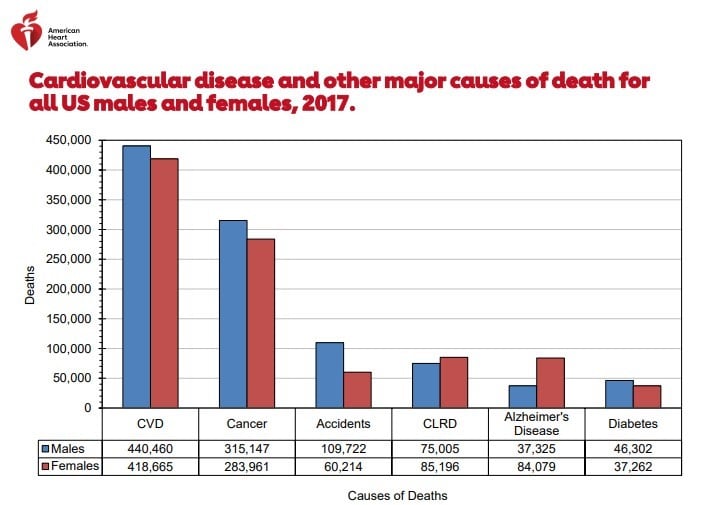Heart Disease: A Threat to Women
Heart Disease is a threat to all women. According to the American Heart Association, 418,665 women died of Cardiovascular Disease in 2017. The term “heart disease” refers to several types of heart conditions. Heart attacks are caused by the most common type of heart disease called coronary artery disease (CAD). This disease occurs when atherosclerosis develops, which is a condition that develops when there is a buildup of plaque in the artery walls of the heart. This condition narrows the arteries making it harder for blood to flow. If a clot was to form, it may block the blood flow in turn causing a heart attack or even a stroke.
Risky Behaviors and Conditions of Women
Women who have high-risk behavior and conditions are at the greatest threat for heart disease. Some of these behaviors and conditions include:
- Smoking (1 in 8 women are smokers!)
- High blood pressure
- High LDL Cholesterol
- Diabetes
- Being overweight
- Physical inactivity
- And excessive alcohol use.
According to the Center for Disease Control, about half of all Americans (47%) have at least 1 of 3 key risk factors for heart disease: high blood pressure, high cholesterol, and smoking.
 Heart Disease: Not Just Affecting Men
Heart Disease: Not Just Affecting Men
Someone dies of cardiovascular disease every 37 seconds in the US. There are 2,353 deaths from CVD each day, based on 2017 data from the American Heart Association. The symptoms women may feel include a fullness in the center of their chest, break out in a cold sweat, experience pain in one or both arms, back, neck, jaw or stomach, have shortness of breath without chest discomfort, nausea or vomiting.
Treatment after a Cardiac Event
For many patients who have suffered a cardiac event, such as a heart attack, bypass surgery, stent placement, valve replacement, or heart transplant, Silver Cross Hospital offers a comprehensive Cardiac Rehabilitation Program. Patients attend this program 3 times a week for 12 weeks.
“We think of it as pointing patients in the right direction (after they’ve suffered a cardiac event). We use monitored exercise and we have an education component, too,” says Kimberly Mason, RN at the Cardiac Rehabilitation Program. “We talk about the different things like the American Heart Association diet, cholesterol, high blood pressure and all the risk factors for heart disease.”
For more information about the heart care offered at Silver Cross Hospital, please click here.